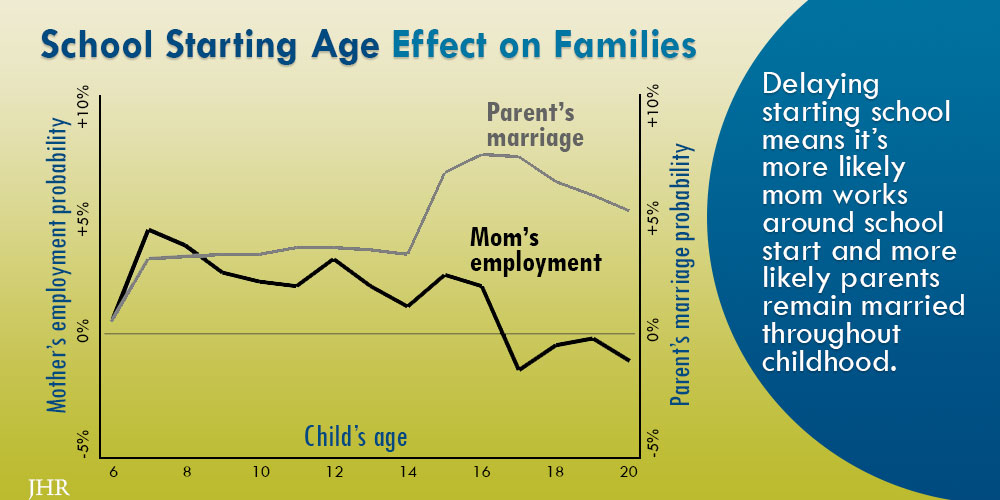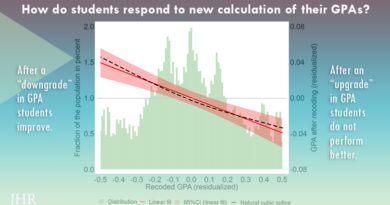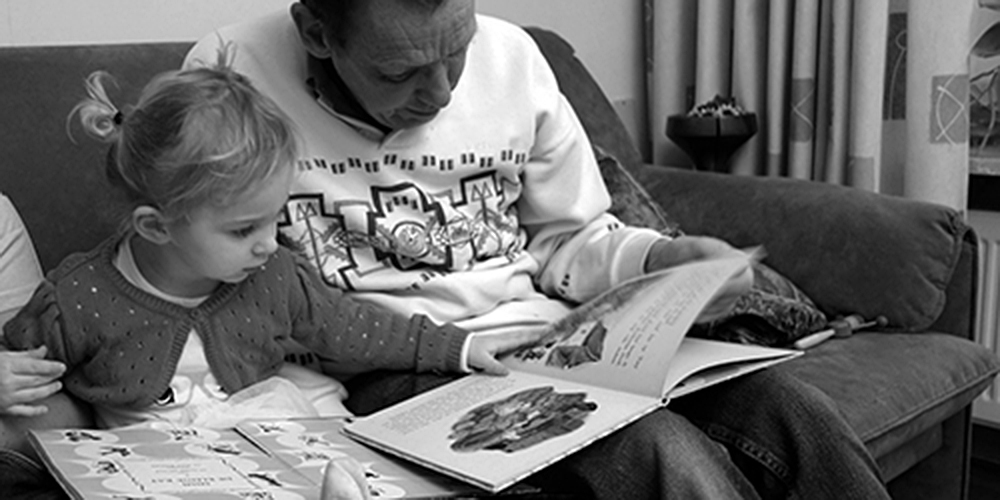Redshirting Kids—Delaying Starting School Affects the Entire Family
Parents often think about their child’s future success when they consider waiting for them to start school, but a child’s age and grade level also affect how much time parents spend on child-related activities, work, and leisure. In a recent study Rasmus Landersø (Rockwool Foundation Research Unit), Helena Skyt Nielsen (Aarhus University), and Marianne Simonsen (Aarhus University) find that postponing children’s school start frees resources and allows parents to use more time on activities unrelated to the child, with effects on the family that extend beyond the early childhood years.
The authors followed a sample of 132,000 Danish children from childhood into adulthood, while linking information on the age at school start to outcomes of their parents and siblings. Danish guidelines stipulate that children start first grade during the calendar year they turn seven. Thus, children born in late December are much more likely to start school at a younger age than children who, by mere chance, were born just a few days later in early January. Comparing parental outcomes for children born just before New Year with children born just after will isolate the effect of age at school start.
The team finds that a later school start increases mothers’ employment in the subsequent years, mainly in low-educated or low-income families, and this effect peaks when the children are seven and then gradually vanishes. Later school start also improves the chances that parents stay married, mainly in low-educated families, an effect that peaks when the children are about to enter high school. Finally, looking at other family members reveals that postponing a child’s school start also improves older siblings’ exam grades.
Children’s school start is classified as a major stressful life event, both for the children in question as well as for their families. These findings underscore that education policies can have consequences reaching beyond the children targeted. And failing to link child, education, and family policies may predominantly hurt low-resource families.
Read the full study in the Journal of Human Resources: “Effects of School Starting Age on the Family,” by Rasmus Kløve Landersø, Helena Skyt Nielsen, and Marianne Simonsen
***
Rasmus Kløve Landersø (@r_landersoe) is a senior researcher at the Rockwool Foundation Research Unit. Helena Skyt Nielsen is a professor of economics at Aarhus University. Marianne Simonsen is a professor of economics at Aarhus University. @Aarhus_BSS



